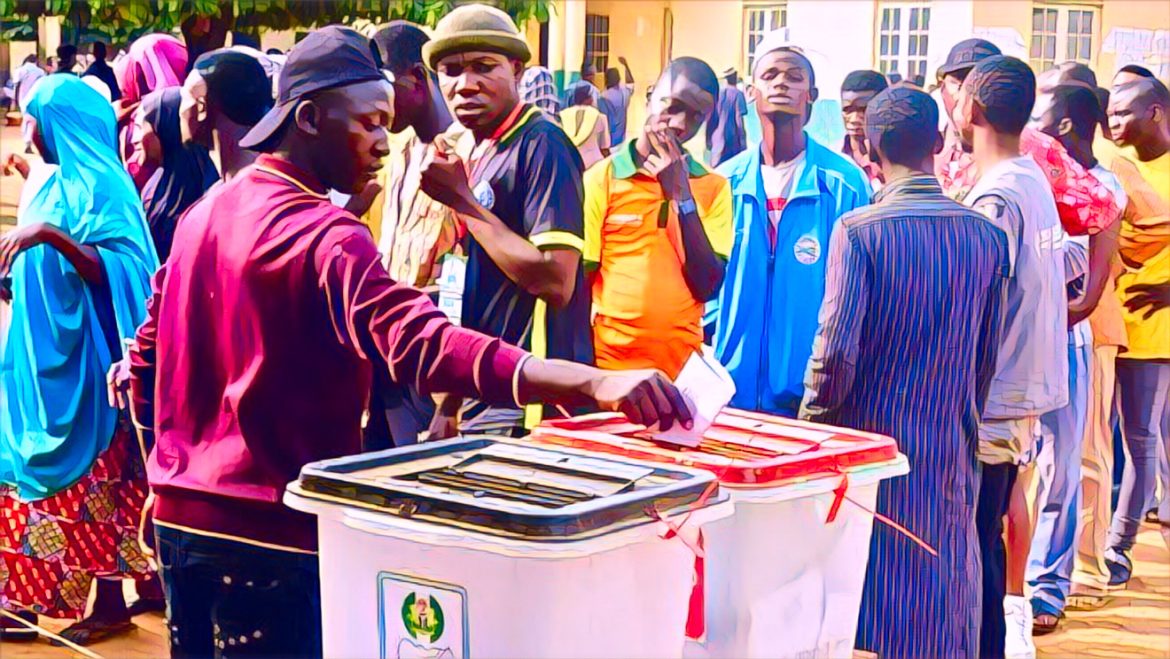KEY POINTS
- Vote-buying threatens electoral integrity in Ondo with cash offers to voters.
- Zoning arrangements in Ondo stifle competition and raise fairness concerns.
- Stakeholders demand action to ensure a free and fair election.
Over two million voters in Ondo State head to the polls on Saturday to elect a governor, with widespread concerns about vote-buying overshadowing the process. Amid reports of cash inducements and other enticements for voters, the election features 17 candidates, with a heated race expected between Governor Lucky Aiyedatiwa of the All Progressives Congress (APC) and Hon. Agboola Ajayi of the People’s Democratic Party (PDP).
Vote-buying remains a threat
Observers and election monitors have raised alarms over rampant vote-buying. Some political parties are reportedly offering between ₦25,000 and ₦30,000 per vote in strategic locations. Accounts of voter account details being collected in advance for post-election money transfers have further heightened concerns about the integrity of the electoral process.
Yiaga Africa, a frontline election monitoring group, reported that cash and food items, including rice, maize, and fertilizer, are being distributed to voters in council areas such as Akure South, Ese-Odo, and Ondo East. The group warned that vote-buying could undermine the credibility of the election.
“The phenomenon of vote-buying has become pervasive and troubling,” said Peter Ameh, Secretary of the Coalition of United Political Parties (CUPP). “It prioritizes financial inducements over meaningful campaign engagements.”
Calls to end vote-trading
Stakeholders, including the National Peace Committee led by General Abdulsalami Abubakar, Civil Society Organizations (CSOs), and the Inter-Party Advisory Council (IPAC), have urged political actors and security agencies to take action against vote-buying.
According to a report by Vanguard, General Abubakar called for citizens to reject inducements and uphold democratic principles. Similarly, Peter Obi, the 2023 Presidential Candidate of the Labour Party, encouraged voters to resist vote-trading, emphasizing that such practices undermine democracy.
“It is money stolen from public funds that they are using to buy your votes,” Obi said during a campaign visit. “We must resist them and build a new Nigeria.”
The two-horse race
The election is largely seen as a contest between two major candidates, Aiyedatiwa of the APC and Ajayi of the PDP. Both are former deputy governors and hail from Ondo South, the region favored under an informal zoning arrangement meant to ensure political balance in the state.
Governor Aiyedatiwa is banking on the incumbency advantage, federal support, and significant financial backing. He is considered a frontrunner in 16 of the 18 local government areas (LGAs). However, critics point to dissatisfaction with federal economic policies and his perceived inaccessibility as potential drawbacks.
Ajayi, on the other hand, is a grassroots politician with strong connections across party lines. His performance in recent debates and his accessibility to voters have bolstered his popularity. However, internal divisions within the PDP and high-profile defections to the APC could weaken his chances.
Security measures in place
The Independent National Electoral Commission (INEC) announced the deployment of 43,157 security personnel to ensure a peaceful process across the state’s 18 LGAs. Inspector General of Police Olukayode Egbedokun stated that additional measures, including a ban on vehicular movement and restrictions on unauthorized personnel at polling stations, are in place to safeguard the election.
Zoning and its implications
Zoning agreements, which designate governorship positions to specific regions, have drawn criticism for limiting competition. Analysts argue that the arrangement excludes qualified candidates from other regions, reducing voter options and diminishing electoral competitiveness.
Ondo South, the battleground for this election, is home to both leading candidates and several other aspirants. While the zone’s oil-rich status could influence voting patterns, political analysts predict a split in voter support between Aiyedatiwa and Ajayi.
As Ondo voters decide their next governor, the election serves as a litmus test for Nigeria’s broader democratic process. With allegations of vote-buying and concerns about political zoning dominating the discourse, the outcome will not only determine the leadership of the state but also reflect the strength—or fragility—of Nigeria’s electoral integrity.
Voters, election observers, and political stakeholders will closely watch whether Ondo sets a precedent for credible elections or succumbs to the growing menace of vote trading.


